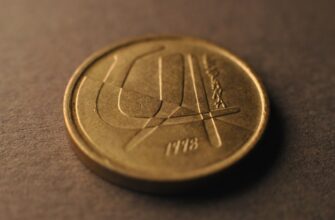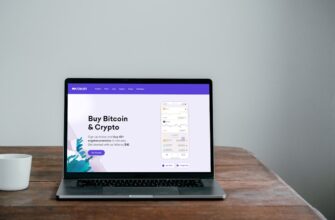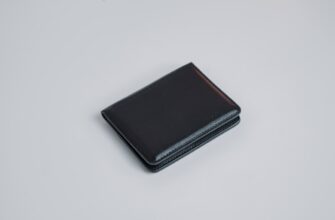- Understanding Crypto IQD: The Digital Future of the Iraqi Dinar?
- What Is the Iraqi Dinar (IQD) Today?
- The Crypto IQD Concept: Digitizing Iraq’s Currency
- Potential Benefits of a Digital Iraqi Dinar
- Critical Challenges and Risks
- Current Alternatives to Crypto IQD
- The Future Outlook: Will Iraq Adopt a Digital Dinar?
- FAQ: Crypto IQD Questions Answered
- Conclusion: Proceed with Informed Caution
Understanding Crypto IQD: The Digital Future of the Iraqi Dinar?
The term “Crypto IQD” sparks intrigue across financial circles, hinting at a potential digital evolution of Iraq’s national currency. While no official government-backed cryptocurrency exists yet, this concept explores the possibility of digitizing the Iraqi Dinar (IQD) using blockchain technology. As nations worldwide explore Central Bank Digital Currencies (CBDCs), speculation grows about Iraq joining this movement. This article examines the realities, potential benefits, and significant challenges surrounding a hypothetical Crypto IQD.
What Is the Iraqi Dinar (IQD) Today?
The Iraqi Dinar is Iraq’s official fiat currency, managed by the Central Bank of Iraq (CBI). Key characteristics include:
- History: Introduced in 1932, replacing the Indian Rupee.
- Current Status: Primarily a physical currency with limited digital banking penetration.
- Exchange Rate: Pegged to the US Dollar since 2020 to stabilize inflation.
- Challenges: Faces issues like counterfeiting, cash dependency, and financial inclusion gaps.
The Crypto IQD Concept: Digitizing Iraq’s Currency
A Crypto IQD would represent a blockchain-based version of the dinar, potentially offering:
- Instant Transactions: Near real-time domestic and cross-border payments.
- Reduced Costs: Lower fees compared to traditional banking systems.
- Enhanced Security: Cryptographic protection against fraud and counterfeiting.
- Financial Inclusion: Access for unbanked populations via mobile technology.
However, no legitimate Crypto IQD project has been endorsed by Iraqi authorities. Beware of unofficial “IQD token” schemes lacking regulatory approval.
Potential Benefits of a Digital Iraqi Dinar
If implemented responsibly, a CBDC could transform Iraq’s economy:
- Economic Modernization: Streamlining government disbursements and tax collection.
- Monetary Policy Efficiency: Real-time economic data for better policy decisions.
- Reduced Black Market: Transparent transactions to curb illicit activities.
- Remittance Revolution: Cheaper transfers for Iraqi expatriates sending funds home.
Critical Challenges and Risks
Significant hurdles stand before a viable Crypto IQD:
- Infrastructure: Requires nationwide internet access and digital literacy.
- Political Stability: Ongoing governance issues complicate large-scale financial reforms.
- Cybersecurity: Vulnerability to hacks targeting digital currency systems.
- Dollar Dependency: Existing USD peg complicates independent monetary policy.
Additionally, scams promoting fake “IQD coins” exploit investor curiosity—always verify sources.
Current Alternatives to Crypto IQD
While awaiting potential CBDC developments, alternatives exist:
- Traditional Banking: Iraqi banks offer digital services, though adoption is limited.
- International Cryptos: Bitcoin or stablecoins (like USDT) used cautiously for transfers.
- Hawala System: Informal trust-based networks remain popular for remittances.
The Future Outlook: Will Iraq Adopt a Digital Dinar?
Iraq’s Central Bank has mentioned exploring CBDCs, but concrete plans remain undisclosed. Key factors influencing adoption:
- Global CBDC trends (e.g., China’s digital yuan, UAE’s digital dirham)
- Stabilization of Iraq’s political and economic landscape
- Infrastructure investments in telecom and cybersecurity
Most analysts predict a 5–10 year timeline before serious CBDC consideration.
FAQ: Crypto IQD Questions Answered
Q: Is Crypto IQD a real cryptocurrency?
A: No legitimate, government-backed Crypto IQD exists. Avoid unregulated “IQD tokens.”
Q: Can I invest in Iraqi Dinar cryptocurrency?
A: There’s no authorized digital dinar for investment. Physical dinar speculation carries high risk.
Q: How would Crypto IQD affect Iraq’s economy?
A: Potentially positive through efficiency gains, but requires robust implementation to avoid instability.
Q: What’s the difference between Crypto IQD and Bitcoin?
A: A CBDC like Crypto IQD would be centralized and state-controlled, unlike decentralized Bitcoin.
Q: Has Iraq announced CBDC plans?
A: The Central Bank of Iraq has expressed interest but released no official roadmap or timeline.
Conclusion: Proceed with Informed Caution
The idea of Crypto IQD represents a fascinating intersection of traditional finance and blockchain innovation. While digitizing the dinar could address systemic challenges, Iraq must first overcome infrastructural and political barriers. For now, investors should treat any “Crypto IQD” offers with extreme skepticism and monitor official announcements from Iraqi financial authorities. The future may hold a digital dinar, but its success hinges on meticulous planning far beyond mere technological adoption.








